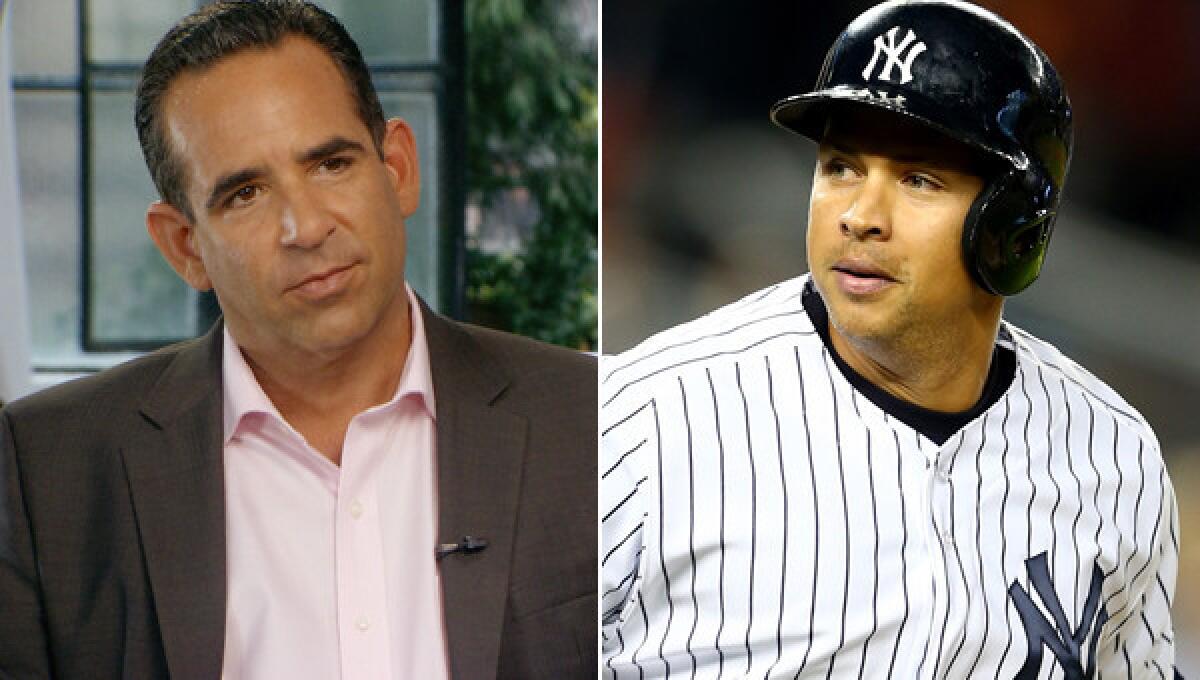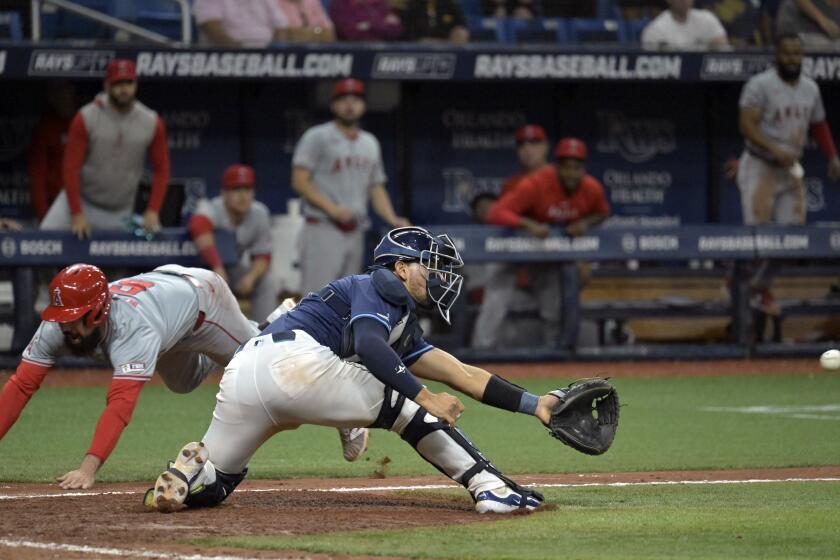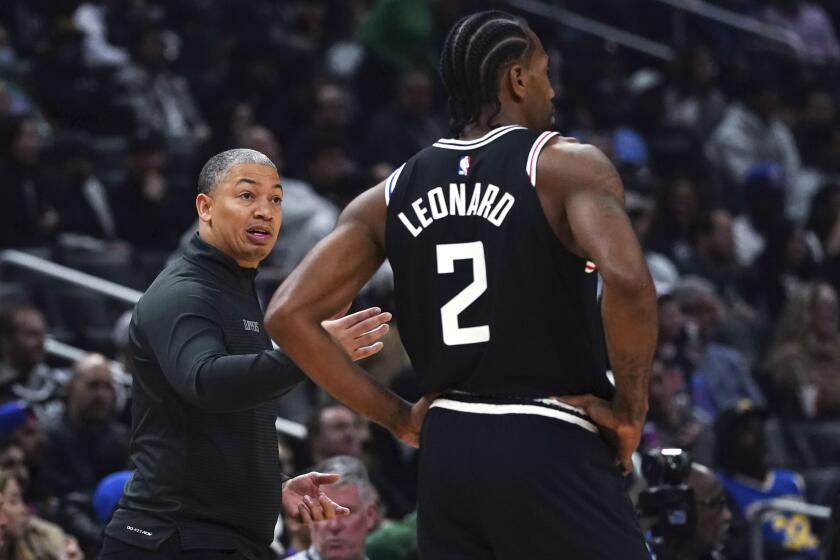Alex Rodriguez’s case steals more of baseball’s heart and soul

Baseball was drained of its charm and innocence long ago, when it went from being a kids’ game to the multibillion-dollar enterprise we know as Baseball Inc.
Now the sad spectacle involving Alex Rodriguez and his former drug dealer, Tony Bosch, is robbing the sport of what remains of its heart and soul.
Actually “sport” may no longer be the right word, since it implies there is a winner and a loser. Clearly there are no winners in a process that involves liars, drug cheats, death threats, clandestine payments, blood drawn in the bathroom stall of a South Florida nightclub and more shady characters than an episode of “The Sopranos.”
For Travis Tygart, who is often left peering at the dark underside of sport as head of the U.S. Anti-Doping Agency (USADA), none of this is new or unusual.
“That’s what we live with day in and day out,” Tygart said. “These are down and dirty, nasty people who are trying to defraud the world. And it’s an ugly business.
“It’s having to confront drug dealers who are doing everything possible to defeat the system, ultimately for money.”
Fortune and fame are at the center of the latest sordid soap opera. Rodriguez, a three-time American League most valuable player and the highest-paid player in baseball history, had both. Bosch, the brash son of a doctor, had plenty of money but wanted more. He ran a South Florida-based rejuvenation clinic called Biogenesis, and he liked to pal around with well-known athletes.
Biogenesis’ connection to Major League Baseball was revealed when a disgruntled former employee leaked clinic documents to the Miami New Times newspaper, showing that the company had done business with players who had previously been suspended for using performance-enhancing drugs.
Bosch at first sided with Rodriguez, and claimed he knew nothing about PEDs. Bosch’s stance changed when MLB sued him, alleging he and his partners had solicited the business of players seeking banned performance-enhancing substances.
With Bosch’s cooperation, MLB built a case against Rodriguez and 13 other players who all received suspensions in August. Twelve players were banned for 50 games. All-Star outfielder Ryan Braun was suspended for 65 games and the 2013 postseason. And then there was Rodriguez, who was banned through the 2014 season, a total of more than 200 games, because, baseball said, he had not only cheated but also tried to impede its investigation.
Rodriguez, who has maintained his innocence, appealed and was allowed to finish out the 2013 season.
Fast-forward to Saturday, when an arbitrator shortened the suspension to 162 games — the 2014 regular season — but otherwise upheld MLB’s ruling.
The next day, Bosch appeared on the CBS show “60 Minutes,” saying Rodriguez paid him $12,000 per month for an array of banned substances, including testosterone and human growth hormone. He also shared detailed text message exchanges that he said showed him advising Rodriguez on PED use.
Bosch said associates of Rodriguez had tried to keep him quiet by offering to move him to Colombia. When he refused, his girlfriend received a threat on his life in a text message, Bosch said. Rodriguez’s attorney denied the allegations.
If Bosch’s “60 Minutes” interview was meant to bring clarity to baseball’s latest steroid scandal, it instead simply shined a brighter light on what has already been an embarrassing, drawn-out legal process.
On Monday, Rodriguez again challenged his suspension, suing his employers and baseball’s players’ association, in Manhattan District Court. Then, hours later, CBS showed more of its interview with Bosch.
“Some people might hate me. Some people might love me,” Bosch told interviewer Scott Pelley. “They might be confused. But at least they’re going to listen, they’re going to listen to what I have to say.”
Apparently, muscles weren’t the only thing to become grotesquely inflated during this sad saga; egos have swelled as well. But as much as Rodriguez and Bosch try to make this about them, what’s really at stake is the integrity of a game that is enjoying record attendance and revenue.
Although some have questioned the simplicity of the doping regime Bosch described in his interviews, others such as Tygart say much of it rang true, proving the scofflaws are becoming more and more sophisticated in evading defection. So the drug detectives, like those at USADA, are constantly having to evolve as well, often using information from people such as Bosch to refine their methods.
“It’s a constant battle. Because well-resourced athletes will go to great lengths to defraud their competitors, their teams and the public in order to reach celebrity, multibillion-dollar status,” Tygart said. “So we on the ground, who are here protecting clean athletes and the integrity of sport, have to take advantage of those insiders and gain as much experience and information as we can to stay ahead and ensure that they don’t get away with it.
“It’s an ugly side of baseball. But it’s the reality of today’s game.”
With the game awash in cash, the ugly side appears to be getting uglier.
Consider the case of Cuban defectors. When players started to flee the island in large numbers, they often escaped on their own and signed for modest bonuses. As the price went up, small-scale smuggling operations began to spring up in South Florida, with the human traffickers often holding players for ransom until an agent paid a hefty fee for their release.
“Shady people are drawn to money like mosquitoes to a bright light,” said Joe Kehoskie, a former agent.
Now, with Cubans signing for millions of dollars based on nothing more than a tryout, some agents say that easy money has drawn the interest of Mexican drug syndicates. Recently, a man with ties to baseball agents and also to a Mexican cartel was executed, by which side it wasn’t clear.
“It’s a whole new world, unfortunately. But that’s what you get when you bring corrupt enterprises, whether it’s drug cartels or those who have no regard for rules,” Tygart said. “The natural result of that is the criminal underground becomes more and more involved because of the money.
“The same tactic that the street thug would use are now being brought into these baseball fields and sporting fields of our country. It’s just the reality.”
A sad reality.
Twitter: @kbaxter11
More to Read
Get our high school sports newsletter
Prep Rally is devoted to the SoCal high school sports experience, bringing you scores, stories and a behind-the-scenes look at what makes prep sports so popular.
You may occasionally receive promotional content from the Los Angeles Times.







